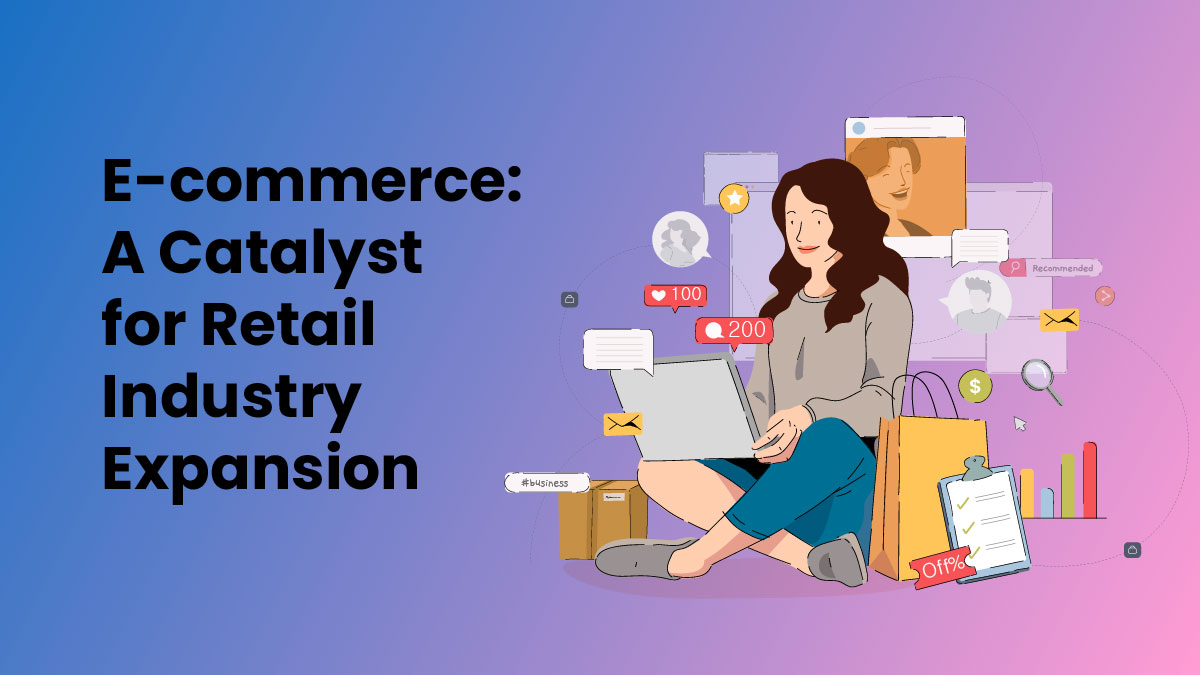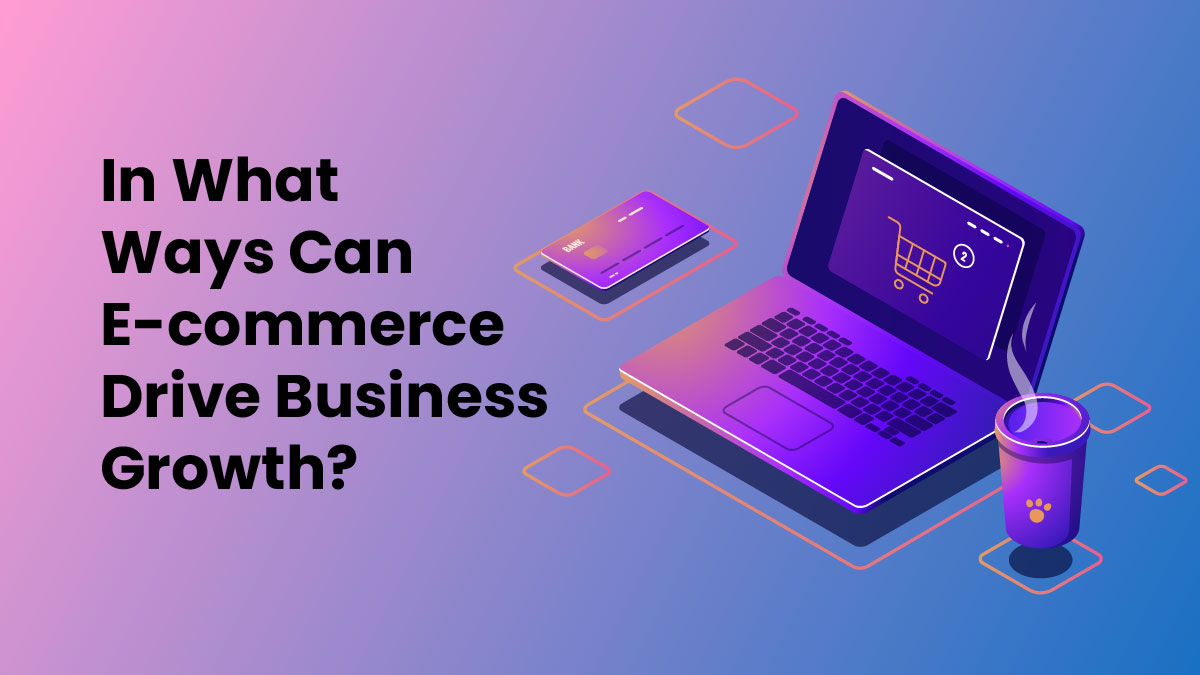Over the past two decades, the retail sector has seen a dramatic transformation, with the advent of e-commerce emerging as a disruptive force that has permanently changed the way we shop. A new era of retail has resulted from the fusion of technology and business, in which physical stores and online marketplaces coexist and frequently seamlessly merge to fulfill the changing customer needs.
In this era of digital commerce, we look into how e-commerce has evolved into the key factor driving the retail sector forward and changing how companies run and how customers shop.
Let’s get started!
Evolving Customer Expectations in the Age of E-commerce
Along with changing customer demands, e-commerce has grown in popularity. Whether they are shopping online, in a physical store, or through a mobile app, customers increasingly demand a seamless shopping experience across all channels. For their businesses to remain competitive, retailers must offer an omnichannel experience that lives up to these standards.
Therefore, regardless of the channel customers choose to use for their purchases, businesses must offer a consistent customer experience. Customers should be able to, for instance, order a thing online, pick it up in person, and return it to the same location where they bought it. For a customer to feel content and to remain loyal, the various channels must work together seamlessly.
E-commerce: A Catalyst for Retail Industry Expansion

Time constraints and efficiency have driven us to several e-commerce giants in the last decade. In 2022, Amazon generated 39.5% of all US retail e-commerce sales or about $2 out of every $5 spent online.
The corporation has established a very smooth purchasing process, which is what makes Amazon such a formidable competitor in the market. Two-day shipping, sophisticated inventory control, product search and matching, data analytics, and personalization are all aspects that other businesses are trying to emulate. Let’s discuss factors related to e-commerce that are boosting the retail industry.
● The Pandemic Effect
The retail and e-commerce sectors have seen tectonic changes in terms of commerce and business since the Coronavirus outbreak. The retail landscape continues to be disrupted and transformed by technology.
Some conventional retailers in the fashion, stationery, and consumer electronics industries that began as brick-and-mortar (B&M) stores have modified their business strategies to keep up with shifting shopping preferences. However, other industries with lesser e-commerce penetration include retail pharmacy, sporting goods, and hardware and home improvement.
● Digital Disruption
Due to the expansion of e-commerce, it is now possible to start a business even with a limited amount of cash. With consumers increasingly relying on online purchasing, e-commerce is providing entrepreneurs with innumerable opportunities.
- Nasdaq estimates that 95% of shopping will be conducted online by 2040.
According to researchers, most merchants associate internet penetration with improved technology and services that allow customers to enjoy the same in-store experience online. While omni-channeling is critical for attracting customers and long-term growth, the initial focus should be on eight fundamental competencies.
For a long time, retailers have been using digital technologies as well. Retailers are now embracing new digital technology as soon as it becomes available, from digital inventory management software to enterprise resource planning (ERP) systems and customer relationship management (CRM).
● Personalized Experience
Customers prefer a personalized shopping experience. This entails merchants making genuine recommendations to customers based on their preferences, location, history, and requirements. It involves the use of chatbots, text messages, and emails to provide delivery information and other relevant services, as well as the streamlining and ease of retailing.
Recommendations based on search history and periodic updates on new products create an efficient yet hassle-free shopping experience for customers, accessible easily from their device screens.
● Data-Driven Experience
Whether it’s as simple as cameras and surveys or as complicated as Internet of Things-style sensor technology, data improves the consumer experience. Retailers may use data to gain insights into every part of their business, including service levels and client preferences. Online retailers utilize Big Data to optimize client journeys by focusing on the consumer experience.
● Flexibility in Payment
Consumers are seeking more flexible payment options, as indicated by the increase in digital payment. The big push is UPI-enabled payments combined with mobile apps, debit and credit cards, and digital wallets. Retailers can use such technologies to improve their offerings.
Retailers who rely on in-store channels for the majority of their sales must quickly address their e-commerce strategy or risk falling behind in today’s fast-paced retail evolution. Online sales increased by 44% in 2020, while in-store sales dropped by 14%, according to a report by Digital Commerce 360.
In What Ways Can E-commerce Drive Business Growth?

Businesses must concentrate on delivering a superior customer experience across all channels if they want to use e-commerce to develop. This includes having an easy-to-use website, giving a large selection of products, and offering top-notch customer service.
Businesses must also spend money on technology that improves customer experience. This entails putting chatbots and virtual assistants in place to offer immediate customer support, utilizing data analytics to tailor the buying experience, and investing in mobile apps that facilitate on-the-go purchasing for customers.
Making informed judgments with the use of data is another way businesses can use e-commerce to flourish. Businesses can spot trends and chances for expansion by studying consumer behavior. Finding the best marketing strategies, top-performing products, and traffic- and sales-generating channels are all part of this process.
Final Thoughts
E-commerce has had a notable impact on the retail sector, and companies must work actively to adapt and remain competitive. Success in the e-commerce industry depends on being able to deliver superior customer experience and use data-driven decision-making. Businesses that remain ahead of the curve and adopt new technology and tactics will prosper as rising trends like social commerce and personalized shopping experiences continue to drive growth. Businesses that strategically position themselves for success now are poised to reap the rewards in the years to come, as both the e-commerce and retail industries offer abundant growth opportunities.




